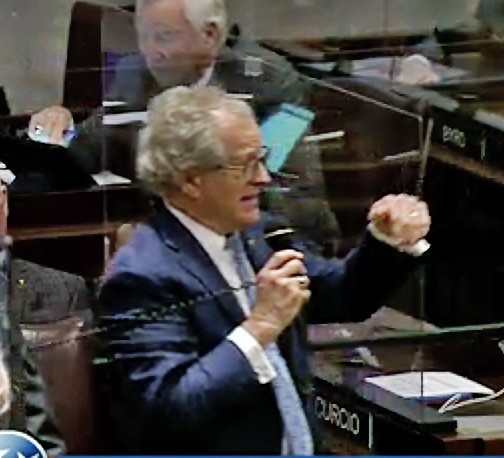 JB
JB
Election Administrator Linda Phillips
In a memorable showdown last year between Shelby County Election Administrator Linda Phillips and the Shelby County Commission, the possibility of litigation between the Shelby County Election Commission and the Shelby County Commission over the purchase of new voting machines was first floated.
County Commissioner Van Turner, speaking for a majority of the commision favoring equipment using paper ballots, informed Phillips, who works in concert with the Election Commission, that the county commission, as the body responsible for authorizing purchase of new machines, could choose not to fund the ballot-marking devices she had expressed a preference for.
“And we could sue you,” Phillips responded.
On Tuesday the SCEC board, in emergency meeting, followed through on Phillips’ threat, voting to file suit to compel the county commission to purchase ballot-marking devices marketed by the ES&S Company and approved by the SCEC in a 4-1 vote last year.
The county commission subsequently rejected a resolution to purchase the ballot-marking devices, pointing out that it had voted twice previously that it preferred and wished to pay for paper-ballot devices (which the commission said enabled greater election transparency and happened also to have a lower price tag. The SCEC subsequently authorized, from its available funds, the purchase of a limited number of he ES&S machines for last fall’s runoff election in Collierville.
But Tuesday’s SCEC action ups the ante on the dispute. A statement issued by the Election Commission after its decision to sue states, “The law is quite clear that it is solely the responsibility of SCEC to select voting equipment and that the county commission is legally bound to fund the annual operations of SCEC and for purchasing the necessary equipment for SCEC to conduct elections.”
But the county commission has noted that its sole responsibility for funding such purchases entitles it and only it to approve such funding. And complicating the SCEC statement of Tuesday is the fact that, as Election Commissioner Brent Taylor had indicated last year, the SCEC apparently had considered but rejected the option of specifying basic guidelines but leaving a choice of vendors to the county commission.
“I am confused as to why the county commission would pass an irrelevant ballot resolution and deny funding for which it is legally responsible after the majority of Election Commissioners voted to purchase ballot marking devices,“ Phillips said in the SCEC statement indicating its intention to sue.
Reginald Milton, a member of the county commission majority that expressed its preference for paper-ballot devices, commented in response: “Ms. Phillips mentions ‘confusion.’ As the prolonged disputes over the recent presidential election made obvious, transparency and the ability to furnish accurate, checkable records of voters’ choices, thereby eliminating potential confusion, are, along with lower costs, the chief advantages for paper-ballot devices. That was the county commission’s considered judgment and is hardly irrelevant.”
Commissioner Turner said, “We have received overwhelming support for hand-marked paper ballots with ballot marking devices as the alternative. … It’s unfortunate that we could not work this out with the Election Commission. We offered a fair compromise, but SCEC would rather take us to court and spend taxpayer dollars on an unnecessary lawsuit. This lawsuit and cause of action is not in the best interest of the citizens of Shelby County but rather is a power trip by the Election Commission which will waste precious time and money.”
